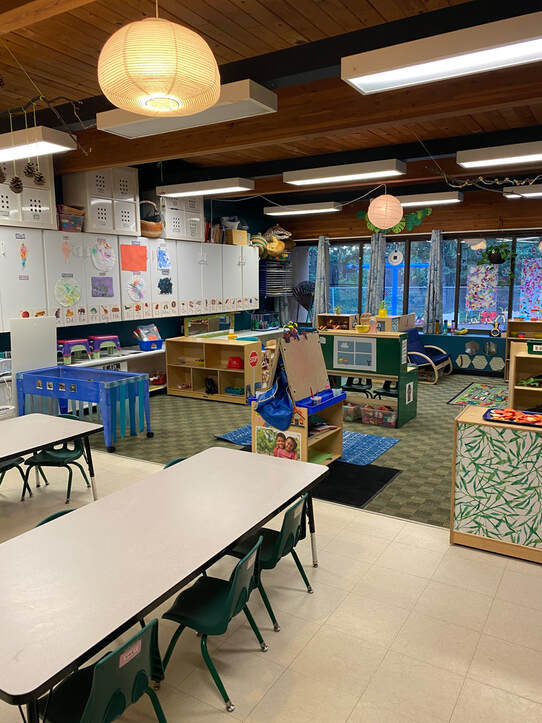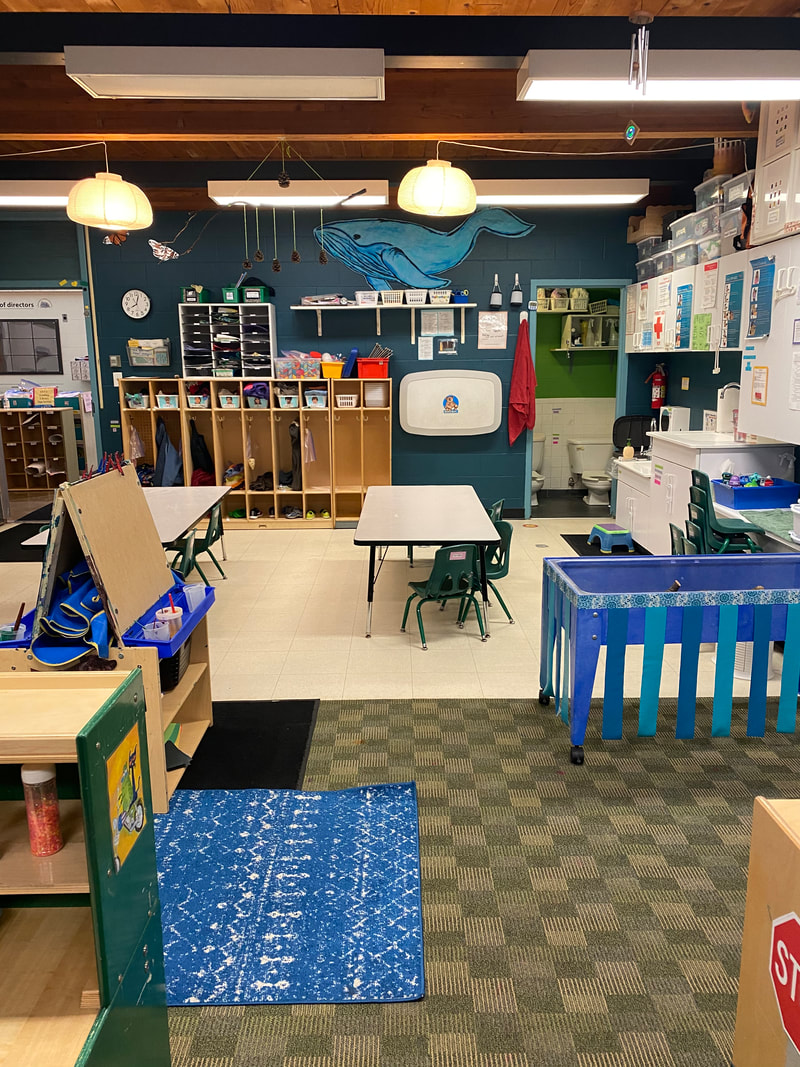Younger Preschool Room
The Younger Preschool Program serves children 33 months - 4 years old. CCCC's preschool ratio is 1 adult for every 7 to 8 children, exceeding minimum state licensing requirements, thus allowing more time for nurturing one-on-one relationships between the teacher and child and for small group activities. The capacity for the younger preschool room is 15 children. The preschool schedule and curriculum are designed to add more structure, decreasing flexibility and minimizing transitions. The daily routine consists of teacher-initiated activities, large group times, quiet reading, large motor, meals, nap, and clean up.
The classroom teaching team changes the equipment in the classroom every three to four weeks to provide children with a variety of age-appropriate toys and equipment to engage with during child-initiated playtime. Large group activities increase the child's attention span and listening skills while developing confidence in a group setting by enhancing social and emotional skills. Curriculum is developed on a weekly basis, focusing on a variety of subjects. Preschool teachers use a number of strategies and activities to encourage growth and development, including: playful interactions, songs, stories, positive reinforcement, direction, redirection, and modeling of appropriate behavior. The younger preschool program focuses on expanding social skills; independence, problem-solving skills, health and safety habits, and a strong emphasis on helping children recognize and verbalize emotions. Teachers also use the Second Step social-emotional curriculum.
The classroom teaching team changes the equipment in the classroom every three to four weeks to provide children with a variety of age-appropriate toys and equipment to engage with during child-initiated playtime. Large group activities increase the child's attention span and listening skills while developing confidence in a group setting by enhancing social and emotional skills. Curriculum is developed on a weekly basis, focusing on a variety of subjects. Preschool teachers use a number of strategies and activities to encourage growth and development, including: playful interactions, songs, stories, positive reinforcement, direction, redirection, and modeling of appropriate behavior. The younger preschool program focuses on expanding social skills; independence, problem-solving skills, health and safety habits, and a strong emphasis on helping children recognize and verbalize emotions. Teachers also use the Second Step social-emotional curriculum.



